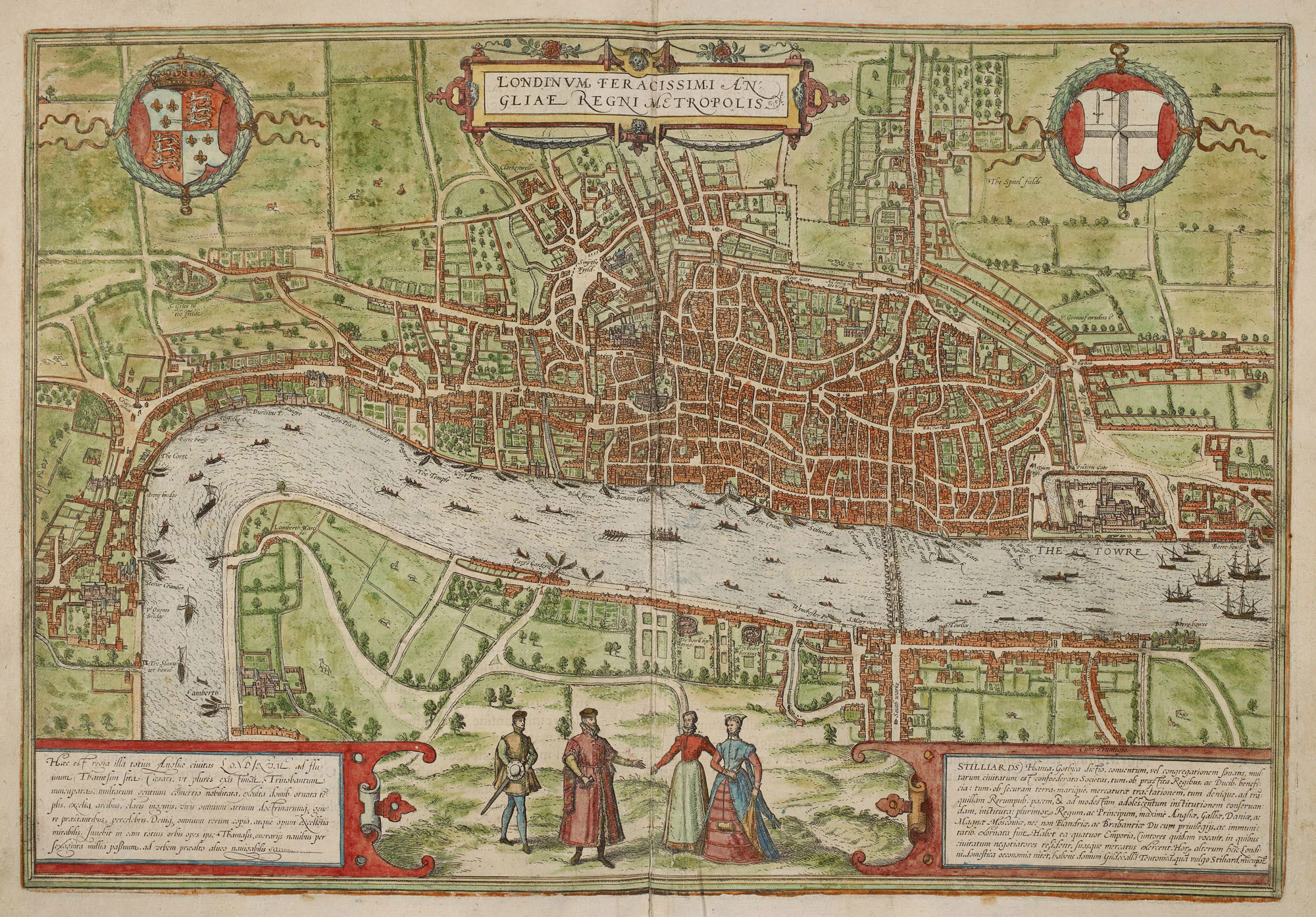
‘He was not of an age, but for all time!’ These prophetic words from Ben Jonson’s commendatory poem in the so-called posthumous First Folio (1623), the first edition of Shakespeare’s collected plays, encapsulate the universal and timeless significance with which Shakespeare’s works are often credited. However, Jonson’s fulsome praise of his fellow dramatist and poet obscures the extent to which Shakespeare was also a writer ‘of an age.’ He was not a solitary genius working in isolation from his social and literary environment, but part of the growing entertainment industry of London’s commercial theatres, which thrived on collaboration – between playwrights, actors, aristocratic patrons, theatrical entrepreneurs, printers, and booksellers. Neither was Shakespeare simply a detached observer of the human condition with timeless insights into human nature. His works engage profoundly with, and are animated by, the social struggles and religious and political conflicts of his time.
This lecture offers an introduction to Shakespeare’s works that aims to highlight how Shakespeare, despite his undoubted individual brilliance, was also the product of his time. For instance, we will consider Shakespeare’s responses to literary trends of his time, his rivalries and collaborations with other playwrights, or the ways in which early modern playhouses, which were so fundamentally different from modern theatres, affected the manner in which he wrote his plays. We will not only embed Shakespeare firmly in theatre history, but also situate him in the early modern lifeworld more generally. For instance, we will discuss how Shakespeare’s plays came to play a part in political intrigues of his day, how the Catholic faith of his ancestors, which was vigorously supressed under Queen Elizabeth I, continued to haunt his works, how he responded to early modern views on race in plays such as Othello, or how he probed the psychological consequences of sexual violence in his narrative poem The Rape of Lucrece. Finally, contextualising Shakespeare in the early modern world will also allow us to reflect in a nuanced and historically informed manner on what he might still mean to us today.
- Teacher: Kilian Markus Schindler
